Eve Leigh- Workshop for the Digital Body
During this public health emergency, the safety and wellbeing of our staff, artists, audiences and families comes first. We are exploring ways in which we…
There are many ways to write a play. One of the ways I’ve been experimenting with recently is to look inwards and really try and listen to what’s there. It’s meditative and hypnotic and sure, a little navel gazey. But it has really helped in a time when I’ve been feeling too reactionary. I don’t want to write an angry lecture play sounding off all my Thoughts. I want to write a play from my heart, in the hope it might persuade or move the hearts of others. So here are some of the bits and bobs I’ve been doing to help me along the way.
ONE:
Before you start – check in with what you are bringing to your desk. This is what I aim for. It doesn’t always happen, but the work is better when it does.
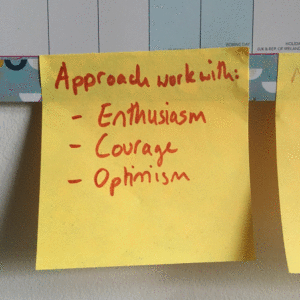
Turn off the socials. Turn off the news. Flip your phone over. This e-workshop is about listening very closely to what your body has to say today.
Ready?
But first, boil the kettle. Make a cuppa of your choice.
Then take a seat. Feet apart, grounded, soles flat against the floor.
Feel yourself plug into the earth. Feel yourself in communion with the rest of the world. Draw on that energy, and feel it travelling up through the soles of your feet, into your legs, and up through the rest of your body, to your fingertips.
Take a breath. Take two. Deep ones. The deepest you’ve taken all day.
Have a sip of your hot drink. Feel its warmth spread through your body.
Play a song for the heart.
This is my offering: https://www.youtube.com/watch?v=pcX-fGJ32Ks
Wiggle your fingers. Wiggle your toes.
Write a love letter to someone you never got the chance to tell you loved.
It doesn’t need to be good. It doesn’t need to be profound. It doesn’t even need to be true. They will never receive it. It just needs to be from your heart.
How did that feel? What was evoked? Nostalgia? Grief? Gratitude? Sadness? Joy? Contentment? Desire? Boredom? Write it down. What part of your body did you feel it in most? Write that down too.
TWO:
Another tune: https://www.youtube.com/watch?v=TSb4DJGZqzY
(RIP Stephen Sondheim <3)
What presence did the hypothetical recipient of your letter have in your life? What presence do they continue to have?
If you could offer someone else what that person offered you, what would it be? Who would you offer it to? How would you offer it? See if you can do it in writing, in another letter. (You obviously don’t need to give it to them).
THREE
Time for another song:
https://www.youtube.com/watch?v=QqhTSifU5HA
Imagine going for a meal in a distant place with either of the intended recipients of your letters.
Picture: the season, the time, the country, the city, the street, the place, the table (if there is one).
Can you see the colours around you? The temperature of the light? Is there music playing? What is it? Are there people around you? What are you wearing? How old are you? Is it the you now? Is it a past you? Or maybe a future you? Or maybe a fantasy you?
Is it your first meeting with this person? A reunion? How do you greet them?
What’s on the menu? What do they order? What do you order? How’s the food?
Over the course of the meal, there’s a question you’re dying to ask them, but are too afraid. Eventually you do. What’s the question? What makes you afraid to ask it? What’s the response?
Does a third person come join you or interrupt at some point? Who? What impact does that have?
How does the meeting leave you changed?
Write the scene.
And remember:
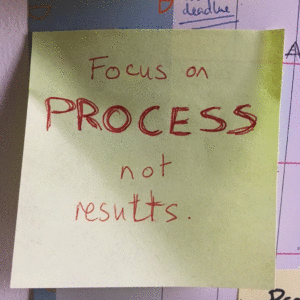
FOUR
For a change in tone: https://open.spotify.com/track/0f6Rfx6vs75kxPNhzY9k8b?si=ca9555b706144216
(Yes, I like musicals…)
Write a list of all the things you want. They can be as trivial or profound as you like – ideally a mixture. Aim for 100. Aim for exhaustion. Don’t think about it. Just keep writing. Keep going at a steady pace. Don’t stop. If you find yourself stopping to think, write slower. The movement of your pen against your page, or fingers against keys should never stop. Write with your body, not your mind.
Take a look at your list. Organise it into the following 4 categories:
Pick the most salient want in each category. Is there a relationship between them? A correlation? Maybe not. And then pick the most salient one of the lot.
FIVE
TAKE A BREAK
https://www.youtube.com/watch?v=D2UWNF8pKwk
(If you loathe musicals, this is probably not the blog for you! Soz…)
What are you going to eat tonight? Might I recommend my mum’s easy dahl recipe:
INGREDIENTS
For the Dahl:
¾ cup red lentils
¼ cup yellow (mung) lentils (if you can’t find this, you can use a full cup red lentils)
¼ tsp turmeric
½ tsp red chili
1 tsp salt
1 tomato halved
3cm ginger crushed
2 cloves garlic crushed
For the Tarka:
2-3 tablespoons oil – vegetable, sunflower or rapeseed.
½ – 1 tsp cumin seeds
1 clove garlic finely sliced
Onion sliced (optional)
Curry leaves (optional)
Whole red chili (optional)
Fresh coriander to garnish – it’s really worth it!
METHOD
Wash the lentils and pop them in a pan with 2 cups of water and bring gently to boil, then reduce to simmer. Pour boiling water over the tomato, and remove and discard the skin. Pop the tomato into the pan along with the spices, ginger and garlic. Cover and let it cook on a low heat for 30 – 40 minutes, stirring occasionally and squishing the tomato up against the side of the pan with a wooden spoon. Add more water if it’s too thick. It shouldn’t be at all claggy.
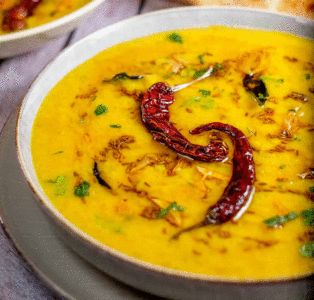
(not my photo!)
Once it’s looking nearly ready, gently heat the oil in a separate pan on a medium heat, and fry the cumin, garlic and any of the optional extras if using. Careful not to let anything burn. Once it’s nice and fragrant, tip the oil and everything in it over the daal. Give everything a good stir, and garnish with chopped fresh coriander.
Yummy – tuck in with rice, roti, naan, paratha, toast, or just with a spoon.
It’s also super lovely with some pickle/achar. Or a chopped salad of cucumber, tomato and onion, drizzled generously with lemon or lime and salt (we call it kachumber).
It’s a great sharer. The above will probably feed 2 – 3 people, but double the quantity if you’ve having people round.
SIX
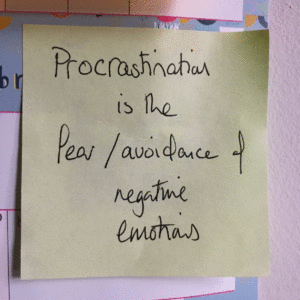
Therefore, back to work. Have a quick skim of this (CW – violence) from theatre director Romeo Castellucci’s notebook.
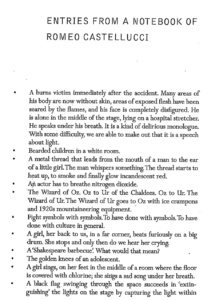
It’s not my bag personally, but I find it illustrative and useful to have a bank of images of my own to draw from.
Start a list for yourself. Aim for ten today, but keep adding in future. Maybe devote a little pocket notebook to just this bank of images.
Today, try to think about the body. What gives it pleasure? What gives it pain? What it looks like in different positions, in different lights, in different temperatures, at different ages. How does it change? What is unsettling? What is unusual? What is surprising? What is transgressive? What is seen as shameful? What legacies does it carry from the past? What can you read from a person’s body? What are the purposes of different body parts? What are the different purposes of each body part? Engage with the physicality of bodies on stage.
SEVEN
Writing is hard. It’s sedentary and lonely, and often when I’m writing, any shame or fear about not being good enough in my work, manifests itself in body shame. At best I’ve simply forgotten that my body has been sitting there patiently waiting for me to finish.
Give your body a hug. If there’s a part of your body that needs extra love right now, see if you can hold that part of yourself. Send extra love that way.
Pick a tune that gets you going.
This is one I’m feeling right now:
https://open.spotify.com/track/6BlJfmd2epklqozGnnmupr?si=f250474658a14503
Have a stretch, a jiggle, a dance. Cuddle an animal. Even if said animal is not amused.
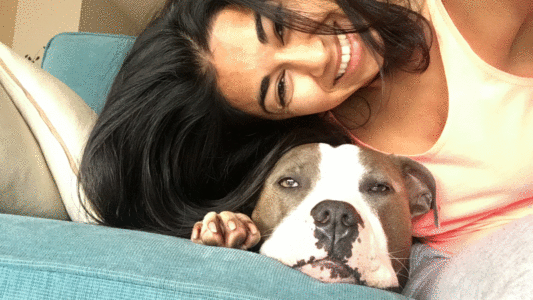
EIGHT
I’m no psychoanalyst, but as a playwright I like that Freud talks about the fundamental component of our personalities – the ‘id’ – being the part of us that wants. Everything we do is driven by what we want.
These wants are in turn regulated by the ego, the part of us that makes rational judgments in our best interests. “I want sweets. But I won’t eat all the sweets because I’ll feel ill.” And further regulated by the superego, cultural rules we have imbibed. “Not only will I feel ill, but my friends will think I’m greedy and there won’t be enough left for other people.”
Psychoanalysts, I’m sure I’m wrong here; feel free to hunt me down to tell me so. But I’m mostly using this to think about characters and plays.
A play is basically a character doing stuff to get what they want. And other stuff getting in the way of that want. “I want revenge, but I don’t think I have the stomach to kill someone, and if I do, I’ll be punished.”
Desire is, in my opinion, at the core of all humanity. And also all drama.
What is the want you are writing about these days? Sometimes the core want is buried under lots of superficial wants. They’re all useful. A character can spend most of the play chasing after fame, thinking that’s what they want, but really they want to prove to their father that that they’re not a useless waste of space, and that in turn means they want to feel worthy.
Take a look at your list of earlier wants. Or think of a new want – something that sits deep in your gut. Can you write a chain of wants for a character you’re currently exploring? For example:
That’s kind of the plot of a play right? Now your turn. Aim for 10, like I have. It doesn’t need to be good. Mine definitely isn’t. It probably isn’t even a play I would watch, let alone write. But it’s a helpful exercise when it comes to mapping out plot against character journeys.
NINE
Take a look at your chain of wants. For each want write down two things that are stopping them from getting what they want. One should be a personal one, something to do with their own personal limitations. And the other should be something do to with the limits the world puts on them.
TEN
Reflect. Look back on your work today. What floats to the top? What do you remember vividly? An image? Particular words? A theme? A feeling? A song? A tone? Make a note. These are important. This is because these things ring true for you on a deep, visceral level.
And I’ll leave you with this beauty:
https://open.spotify.com/track/7m2FHPhbBXIWC9Ay1m6YK5?si=8a5c716f05f94a4e
As you step away from your desk, consider that this song is partly about how hard it is to move between two worlds – the real one, and the world of your art.
P.S. The animal loves a cuddle really.
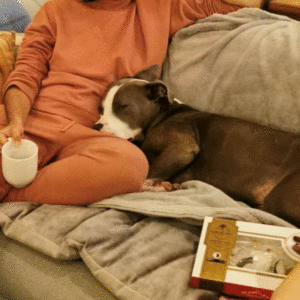
Iman Qureshi’s play The Funeral Director won the Papatango Prize in 2018 and premiered at Southwark Playhouse before touring the UK (ETT/Papatango). Iman is currently under commission from the Bush Theatre, English Touring Theatre, the Royal Court where she is a recipient of the Clare McIntrye Bursary, and the Almeida Theatre where she is part of the inaugural Genesis programme. She also has several TV projects in development including with STV/BBC, NBC Universal, Wychwood and ViacomCBS.
Comments
Add comment